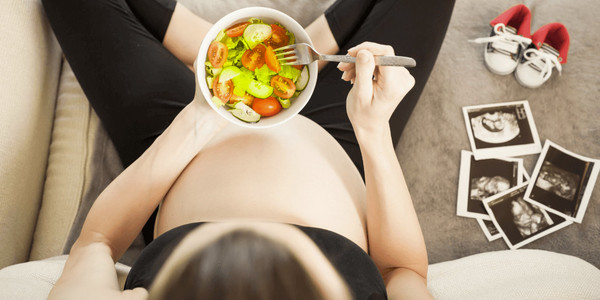

TTC (Trying To Conceive) brings out the POAS (Piss On A Stick Addict) and symptom spotter in many ladies!
Every twinge, every minor sign or symptom that could be anything becomes a ‘I must google this – is it a sign!?’
We’ve collated the early pregnancy symptoms that you may (or may not) experience at some point early on in pregnancy.
Ovulation (2 weeks into your cycle)
Some ladies (myself included) suffer with what is known as ‘Mittelschmerz‘ which translates from German to ‘mid-cycle pain’ – don’t ask me how I remembered that off the top of my head – which is usually the egg being released. This pain varies from woman to woman; some find it feels like pinching in the area of the ovary that is ovulating, others feel cramping.
Some ladies even experience spotting as the follicle bursts to release the egg.
You may notice your cervical mucus becomes very stretchy and clear, to the consistency of egg whites – this is optimal for allowing sperm to travel to your egg.
Due to the hormonal fluctuations, some ladies experience sore boobs and a heightened sense of smell which can be confusing as they’re also signs of pregnancy!
3 weeks pregnant – 1 week after ovulation
If your egg was fertilised (YAY!), you are technically 3 weeks pregnant a week after ovulation, as the first 2 weeks of your cycle are added on.
This is a little early to test but if you ovulated slightly earlier than anticipated, or had quick implantation, you may potentially get a positive if you do a sensitive test such as First Response Early Response*.
You may feel ‘pinching’, twinges or mild cramping if a baby is burying itself in there (implantation). This usually happens between week 3 and 4 but may happen just before the expected period too.
1 in 3 women experience what is known as implantation bleeding. Read more here.
Some ladies may start to feel their symptoms as soon as implantation has taken place; however, this isn’t common as it takes time for your HCG levels to increase enough to cause symptoms. Ladies who are super sensitive to HCG, or who have very high levels, may experience;
- Nausea
- Sore boobs
- Tiredness
- Implantation bleeding, as explained above
4 weeks pregnant – 2 weeks after ovulation
2 weeks after ovulation, and around the time your period is due (if you have a 28 day cycle), you should get accurate results when doing a pregnancy test.
At this point, you may have more obvious symptoms. However, early pregnancy symptoms can sometimes be very similar to the start of AF (Aunt Flow), so you should do a test to be sure.
The following early pregnancy symptoms are common at 4 weeks pregnant; don’t worry if you don’t, as they can start slightly later for some ladies!
You may be starting to feel nauseous in the morning… or afternoon… or night… or all day if you’re unlucky!
- Sore boobs.
- Mild pelvic cramping.
- Implantation bleeding may still be occurring depending on when you ovulated.
- Metallic taste in mouth.
- Gums mildly bleeding when you brush your teeth.
- Food/smell aversions.
- Unexplained fatigue.
- Spotty skin.
- Congested nasal passages.
These early pregnancy symptoms can sometimes fluctuate quite a lot early on. One day, my boobs would be agony, and the next they’d be fine, so don’t panic if this happens to you!
By 10 weeks, your placenta will take over from the corpus luteum in maintaining your progesterone levels (important for supporting a pregnancy), so your early pregnancy symptoms may ease up a tad.
There are so many symptoms, lots of them specific to individuals, that it’s not possible to list them all! If you think that you may be pregnant, definitely take a pregnancy test, repeating every 48 hours if the test is negative. If you’re unsure, ask your GP for a blood test.


.png)








.png)